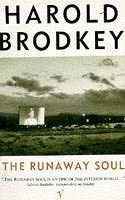|
FRAGMENTS IN MODERNISM PART TWO –
HAROLD BRODKEYS “RUNAWAY SOUL”
As outlined in my “To the Lighthouse” piece, modernism is
form of fragments, reflecting the uncertainty of the times. As a consequence
of modernising contextuality, can the form ever be relevant again or
has it been since?
Perhaps the best use of fragmenting can be found in Harold Brodkey’s
1991 work “The Runaway Soul”, a novel which kept the spirit
of modernism very much alive and well. The Kirkus review describes it
as “a psychic web of small electrical events feeding and racing
everywhere, and never stated formally. Nothing happens now: every action
arrives through a veil, often at merciless length.”
Fragmenting seems appropriate for a writer who began his career as a
short story writer – his first short story collection “Love
and Other Sorrows” was published in 1958, at the tail-end of the
Modernist movement. Six years later, he signed a book contract for his
first novel, but he continued to publish short stories, largely in the
New Yorker, featuring a set of recurring characters which he announced
as “fragments of the novel.”
By the time “The Runaway Soul” was published in 1991, times
were uncertain in America. The Presidency was held by George H.W Bush
Senior. He had entered office at a time of uncertainty and change in
all directions, with the Fall of the Berlin Wall and the collapse of
the Soviet Union happening early on in his presidency. After an initial
record-high approval rating of 89%, his popularity quickly declined
when he broke his “no new taxes” pledge and the country also
sank into recession. Peoples certainties had clearly been knocked –
surely, in the literary world, modernism was ready to be relevant again?

“The Runaway Soul” is only on the fringes of classic status,
but it deserves so much more. The Guardian's James Wood said that “Originality
is the novels ambition, procedure and its subject,” but it actual
fact there is little in “The Runaway Soul” which does not
feel familiar, done before in some way. This is not necessarily a bad
thing – it matter little; borrowing from the best (Joyce, Proust,
Faulkner) makes this novel hugely effective.
Sometimes, it is recycling past techniques which makes things most relevant
to the present. Thus, whilst it managed to escape the label, “The
Runaway Soul” is not only a great modernist piece but an exercise
in the very nature of postmodernism.
Amy Britton
|

